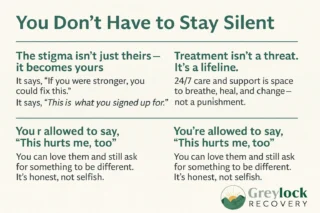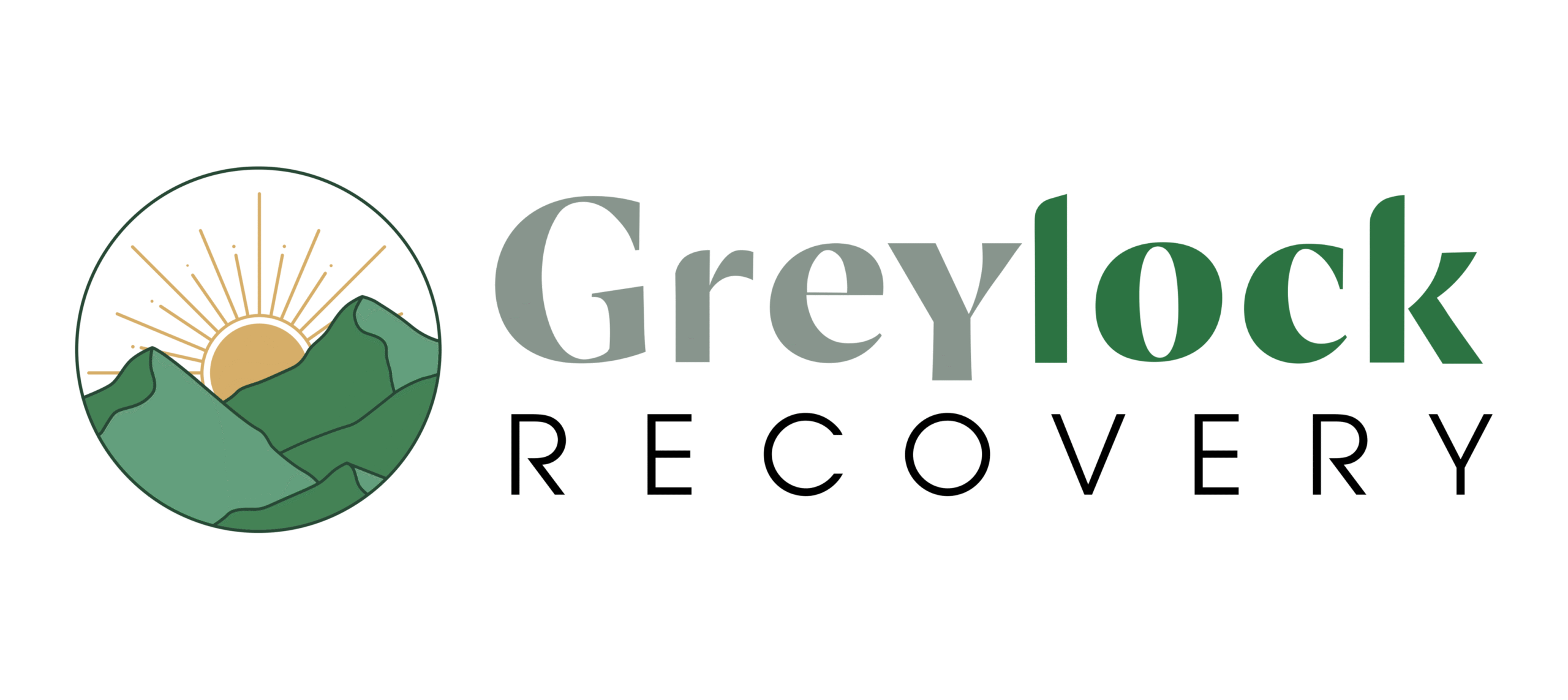When you’re in love with someone who’s using, silence can feel like your only safe place.
You protect them. You cover for them. You smile when everything inside you wants to scream.
Not because you’re weak—but because you love them so much it hurts.
But that silence?
It’s not neutral. It isolates you. It erodes you. It convinces you this pain is just part of being in love with someone who’s struggling.
If you’ve ever wondered whether residential treatment in Massachusetts might help—but felt too ashamed, too unsure, or too scared to speak up—this blog is for you.
This isn’t about blame. It’s about truth.
You’re allowed to be hurting. You’re allowed to need something to change. And yes, you’re allowed to say the word treatment out loud.
The Stigma Isn’t Just Theirs—It Becomes Yours
Addiction stigma doesn’t just affect the person using. It wraps around everyone who loves them. Especially you.
You might catch yourself saying:
- “They’re just stressed right now.”
- “They’re not like those addicts.”
- “We’re figuring it out.”
Even as you cancel plans. Miss work. Lie to friends.
Even as you watch the person you love disappear in front of you—bit by bit.
Because the shame isn’t just public. It’s personal.
It whispers, “If you were stronger, you could fix this.”
It says, “This is what you signed up for.”
But here’s the truth: being loyal doesn’t mean being silent.
And being tired doesn’t mean you’ve stopped loving them.

Love Without Boundaries Isn’t Love—It’s Disappearance
You can love someone completely and still feel like you’re drowning.
Addiction in a relationship has a way of shrinking your world until all you do is manage chaos:
- Covering for them
- Checking their texts
- Wondering if tonight is the night something truly awful happens
And then—feeling guilty for wanting something more.
But your needs don’t make you selfish.
They make you whole. And whole people need space, peace, and truth.
Residential treatment isn’t giving up on them. It’s giving both of you a shot at oxygen.
Treatment Isn’t a Threat. It’s a Lifeline.
It’s easy to imagine that bringing up treatment will make everything worse.
That they’ll feel betrayed. That they’ll explode. That they’ll leave.
And they might. At first.
But what if treatment isn’t the end of something?
What if it’s the pause that lets them breathe—and you breathe too?
Residential treatment means:
- 24/7 support in a safe, structured space
- Medical detox and emotional stabilization
- Therapists who understand addiction as a health issue—not a character flaw
- Time away from triggers so real healing can begin
It’s not about control. It’s about compassion with boundaries.
And no—you can’t force someone to go. But you can name the truth, even if your voice shakes.
You’re Allowed to Say “This Hurts Me Too”
One of the hardest things for partners to admit is that they’re suffering, too.
Because addiction can make you feel like:
- You don’t get to take up space
- Their pain is always the bigger pain
- Your needs are luxuries, not essentials
But pain doesn’t have a ranking system.
And you matter. Not just as a caregiver. Not just as a witness. As a person.
You can love someone and still say, “This is hurting me.”
You can want them to heal—and still want peace in your own body.
Saying that out loud isn’t selfish. It’s honest.
The Lie That Keeps You Stuck: “I Can Handle This”
You’re probably used to being the strong one.
The one who keeps the house running, the story straight, the hope alive.
But strength without rest is a slow burn toward collapse.
When you believe the lie that you’re the only one who can help, you stop asking for help yourself.
And it’s not sustainable.
You’re not meant to carry both of you alone.
That’s not strength—it’s survival. And you deserve more than just surviving.
Greylock Recovery isn’t just for the person who’s using.
It’s for families. For partners. For people like you who’ve been quietly bleeding for months—or years.
What You’re Really Saying When You Suggest Treatment
Sometimes, saying “You need treatment” sounds harsh—even to your own ears. But beneath that sentence is a deeper message:
- I see you.
- I know you’re hurting.
- I believe there’s a better way.
- And I can’t keep pretending this is okay.
Framed with love, residential treatment becomes a doorway—not an ultimatum.
You can say:
- “This isn’t about punishment. It’s about space to breathe.”
- “I love you. And I need us both to have a chance at something better.”
- “I’m not abandoning you. I’m asking you to try.”
And if they say no? That’s not the end of the conversation. It’s just the beginning of honesty.
FAQs: Stigma, Silence, and Residential Treatment
Why do partners stay silent for so long?
Because the world still shames addiction—and by extension, those who love someone with it. Many partners worry they’ll be judged, misunderstood, or told to “just leave.” Silence becomes a way to survive—but it also prevents support from coming in.
What actually happens in residential treatment?
Residential treatment at Greylock provides round-the-clock support, including:
- Medical detox (if needed)
- Group and individual therapy
- Structured daily routines
- Emotional and psychiatric care
- Long-term planning and aftercare
It’s a safe, immersive environment designed to help your loved one reset—and re-engage with life in a healthier way.
Will they resent me for bringing it up?
It’s possible. Many people initially resist the idea of treatment. But often, that resistance softens once they realize they’re being approached with love—not judgment. You can’t control their reaction—but you can control your tone, your clarity, and your boundaries.
What if they say no?
Then you stay steady. You keep the door open. You hold your line with love.
You can say, “Okay. I’m here if you change your mind. But I won’t keep pretending this is working.”
Sometimes, the seed takes time to grow.
Can Greylock help me, even if my partner doesn’t go?
Yes. We offer support and guidance for families and loved ones—even if the person using isn’t ready yet. You don’t have to wait for them to get help before you do.
Is it really okay to take care of myself in all this?
It’s not just okay—it’s necessary. You are more than a supporter. You are a human being in pain. Getting therapy, talking to someone, or simply admitting out loud that this is hard is a vital act of care. You matter.
You Don’t Have to Be Silent Anymore
Loving someone through addiction is one of the loneliest experiences in the world.
But silence won’t protect them. And it will hurt you.
You can keep loving them and speak up.
You can hope for their healing and ask for your own.
You can want them to get help and stop doing it alone.
Call (413) 848-6013 to learn more about Residential Treatment services in Williamstown, Massachusetts. The version of your partner that’s still in there? They’re worth meeting again.


